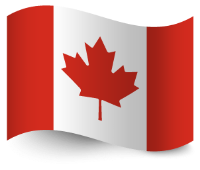Cold Sores Have Mental Health Impact
 The fact that cold sores are so commonplace – around 3.7 billion people worldwide are thought to suffer from them – means it is easy to feel blasé or even complacent about the virus. It is tempting for many to say, "Don't worry, it's only a cold sore. Take your cold sore treatment and get on with it".
The fact that cold sores are so commonplace – around 3.7 billion people worldwide are thought to suffer from them – means it is easy to feel blasé or even complacent about the virus. It is tempting for many to say, "Don't worry, it's only a cold sore. Take your cold sore treatment and get on with it".
However, the truth is that however commonplace and however benign the virus might be – although in a small minority of cases those with weakened immune systems may have their lives threatened by an outbreak – it can actually be very difficult to live with, particularly if you are prone to frequent and persistent outbreaks.
All too often, those who experience outbreaks find the established high street cold sore treatments to be unsatisfactory and lacking real efficacy. As a result, they are left feeling powerless in the face of another outbreak, uncomfortable with sores and scabs, visibly blighted and, sometimes, stigmatised by the appearance of sores on their face.
This has an inevitable mental health impact. It can lead to depression, OCD, anxiety, social phobia and more. Around 1 in 4 people in the UK will experience some form of mental health problem each year, and it is easy to see how a cold sore can trigger or exacerbate symptoms. After all, our faces are the major aspect of our real world avatars and anything that interferes with the way we feel about the appearance of our faces can be psychologically debilitating.
In fact, one report in the journal Schizophrenia Research describes how cold sores are associated with the kinds of reductions in concentration, memory and coordination that are frequently the early warning signs of schizophrenia. This is not to say that cold sores cause schizophrenia or even that they increase the chances of the disease – more that the association should serve as a useful reminder that cold sores are caused by a virulent and complex virus that clearly has an impact on the mental health of sufferers. Telling people to apply cold sore treatment and get on with it fails to understand this. We should not let the commonplace nature of any condition block us from empathising with those who suffer from it.
Surviving cold and flu season
 We're in the midst of cold and flu season. But falling ill isn't an inevitability, and by following a little advice, you can help yourself from becoming sick. So here are some of our top tips. After all, it never hurts to have a refresher on how to avoid a common cold, and as suffering from an existing illness increases the likelihood of the HSV-1 virus becoming active and causing a cold sore outbreak, you'll also be helping your face stay blister-free.
We're in the midst of cold and flu season. But falling ill isn't an inevitability, and by following a little advice, you can help yourself from becoming sick. So here are some of our top tips. After all, it never hurts to have a refresher on how to avoid a common cold, and as suffering from an existing illness increases the likelihood of the HSV-1 virus becoming active and causing a cold sore outbreak, you'll also be helping your face stay blister-free.
Wash your hands thoroughly
As you are probably well aware by now, washing your hands regularly is one of the best defences against catching an illness. Germs get easily passed around as they stay on objects such as computer keyboards and door handles – and they can live on these surfaces for hours. You can wipe down shared devices before using them to help stop the spread, and washing your hands regularly will also help.
But it’s not just the frequency that’s important; how you wash them is vital, too. Proper hand washing technique, according to the NHS, is very thorough, as many people commonly miss certain areas, such as the thumbs, fingertips, and the back of hands. First, you wet your hands and then lather them up with a good amount of soap so that it covers all over both hands. Rub your hands together palm to palm and then wash the back of your hands, interlacing your fingers as you do so. Clasp your right thumb with your left hand and rub in rotation and then repeat with the opposite hand. Then rub your fingers in the other hand's palm in a circular motion and, again, repeat with the opposite hand. Dry thoroughly. The rule of thumb (no pun intended) is that the washing process should take the same amount of time as singing "Happy Birthday" aloud two times (about 20 seconds). If you're concerned about dry and chapped hands (a common concern in the winter months), make sure you use a moisturising hand wash.
Get enough rest
To fight off the common cold-causing winter bugs, your body needs to be well rested, so make sure you're getting enough sleep. The recommended amount of sleep is between seven and nine hours – but it is common for many people not to get this much. In the winter months, when a larger proportion of the days are spent in darkness, it's more usual to feel drowsier earlier in the evening, so it should hopefully be easier to catch up on sleep. This is because our bodies produce more melatonin – a.k.a. the sleep hormone – when it's dark. Made by the pineal gland in your brain, melatonin helps control your sleep and wake cycles.
Eat the right foods
Make sure you pack your diet with the right foods to strengthen your body's natural defence system. Brightly coloured fruits and vegetables are your friends, especially those with vitamin C such as oranges, strawberries, bell peppers, and tomatoes. Ensuring you get your 5-a-day is always an effective way of giving your immune system a much-needed boost. After a cold day out and about, a warm bowl of vegetable soup could be just what you need.
Stay active
Don't be afraid of a little exercise. When it’s cold outside, going for a run may place at the bottom of your list of things you want to do, but this doesn't change the fact that regular moderate exercise will help keep your immune system strong. If it's too chilly outside, try to find ways of exercising at home or join a gym. No need to overdo it, though. If you're not used to being active, gentle exercise is fine.
Stay positive
One last thing – January is a time where many of us feel down. The gloomy weather and perhaps a few failed New Year resolutions don't help, but there can be many other reasons why people can feel sad at this time of year. But it's important to stay positive. You need to be at your best to avoid becoming ill (or, if you've already caught a cold, you need to be at your best to beat it), and when you're stressed, your immune system will weaken.
Occupying your mind with a new hobby and spending time with friends and family can help – as long as they are not ill themselves. If you have a cold sore, then yes, you should refrain from loved ones coming into direct contact with it (so no kissing), but you shouldn't let the small blemish prevent you from socialising altogether (and if you have a tube of reliable cold sore cream, such as Herstat, you should be ready to tackle the cold sore in its early stages so that it is never able to develop to become visibly noticeable).
Ultimately, nothing you do will ever completely guarantee that you’ll avoid illness. What you can do, however, is give yourself a good fighting chance by following the above points. But remember: if you feel like your symptoms are worsening or do not show any signs of improving after a week, you may need to go to your GP. But it is worth calling 111 to get advice over the phone first.
NHS Likely to Stop Prescribing Cold Sore Creams
Cold sore sufferers who have grown used to receiving their cold sore treatments from their GPs will have to adapt to news that the government plans to stop funding prescription cold sore treatments as part of a move to cut back on the numbers of prescriptions it offers for a range of conditions, including dandruff, verrucas, coughs and colds and some vitamin deficiencies.
Perhaps it is an opportunity for some to look again at what's available on the market in the hope of finding the best cold sore cream for their needs, but for some of those set to lose out on the 3,000 products that will likely lose their NHS funding, things may not be so easy.
Sure, the government has to take steps to reduce the £9billion drugs bill, but the £650million saving it hopes the proposals will achieve may come at a cost for those in the most difficult financial circumstances.
More than anything, the proposals draw attention to the fact that the NHS routinely pays more for basic medicines than a customer would do if they bought them over the counter. For example, a box of paracetamol can cost as little as 35p at a supermarket but may cost the NHS as much as £34. The situation may be similar with cold sore treatments and the reality is that the NHS may not always provide the best cold sore cream for the job.
Simon Stevens, chief executive of the NHS, said: "The NHS is one of the most efficient health services in the world but we're determined to make taxpayers' money go further. The NHS should not be paying for low value treatments and it's right that we look at reducing prescriptions for medicines that patients can buy for a fraction of the price the NHS pays."
Some of the conditions affected by the proposed changes include the following:
- Cold sores
- Conjunctivitis
- Cradle cap
- Haemorrhoids
- Infant colic
- Diarrhoea
- Ear wax
- Mild indigestion
- Malaria prevention
- Minor burns and scalds
- Mouth ulcers
- Nappy rash
- Travel sickness
What Treatments Does the NHS Offer?
The NHS currently prescribes a range of tablet-form antiviral cold sore treatment medications, including acyclovir, penciclovir, as well antiviral creams, hydrocolloid-containing cold sore patches and for those who are experiencing significant pain, paracetamol and ibuprofen.
Although these treatments are often the right choice for certain sufferers, in other cases they may not be the best cold sore treatment available; sometimes individual sufferers have to experiment to find what works best for them.
Herstat, a Product That Works
Here at Herstat, we believe in our product. It can be applied at any stage of a cold sore outbreak and is available either as an ointment in a tube, for easy application, or as a conveniently sized LipCare stick.
It is based on the natural healing powers of propolis and trials have shown it to work 3.5 days quicker than a placebo during a trial, with more than 9 in 10 of participants saying they would use it again.
All I Want for Christmas is to be Cold Sore Free
 In the absence of a proven cold sore cure cold sore sufferers just have to try their best to shorten the length of their lesions, to lessen the presence of pain and to keep good overall health both during and after an outbreak.
In the absence of a proven cold sore cure cold sore sufferers just have to try their best to shorten the length of their lesions, to lessen the presence of pain and to keep good overall health both during and after an outbreak.
Of course, a good cold sore cream has a massive role to play in achieving these ends, but in an era when a large part of us are waking up to the impact of diet on everyday and long-term wellbeing, it is sometimes useful to remind ourselves just how much of an impact food can have on helping us to both avoid and minimise cold sores.
And what better time to do this than Christmas! Christmas just happens to come smack-bang in the middle of winter when climatic conditions are at the most conducive for both the spread of the cold sore virus to first-time sufferers and outbreaks for those who've already experienced at least one outbreak. Christmas also happens to involve a lot of festive eating and drinking, some of which may only serve to increase the cold sore risk.
So for our take on Cold Sore Friendly Christmas Eating, read on.
Sling the Salty Snacks
According to the Journal of Clinical Investigation, ingestion of too much salt serves to undermine immune function. Replace salty snacks with lovely fresh crudités instead. For example, carrots and other vegetables are brimming with immune-boosting vitamin A. We suggest crudités at Christmas for those who want to keep and stay well.
Manuka for Sweeter Moments
Trifle, Christmas cake, Christmas pudding, brandy butter, sweets, chocolate, etc. – Christmas is full of sweet moments. However, as Nutrition Journal reports, sugar impairs the ability of white blood cells to kill bacteria. If you must have a bit of sweetness at Christmas, why not opt for manuka honey instead. Manuka has antiviral properties and certainly has the edge over sugar when it comes to Christmas cold sore sweetness.
There'll be no Chestnuts Roasting by the Fire
Chestnuts have a high arginine content and a high arginine-to-lysine ratio so, unfortunately, will only help your cold sore prosper. The same goes for other nuts. Try Swiss, Gruyere, Blue or Edam cheese for foods that are high in lysine and have a high lysine-to-arginine ratio.
Drink Tea, not Spirits, to Keep Your Spirits Up
The Journal of Clinical Endocrinology and Metabolism found that boozing increases stress hormones; bad news if you are a cold sore sufferer and want a drink at Christmas. Try rooibos tea for its stress-reducing flavonoid Aspalathin. An alcoholic drink might seem like a shortcut to stress-relief, but this is only likely to prove short-term. If you really want to beat cold sores this Christmas, put the kettle on.
Save Your Stocking Chocolates for the New Year
Chocolate may be one of your favourite foods but is, unfortunately, full of arginine, which just happens to be one of the cold sore virus's favourites. If you really don't want to develop a cold sore this Christmas, try snacking on papaya, mango or apricot instead. Or have a glass of milk, which is full of lysine.
What's Important to You?
Skipping some of the less cold sore sufferer friendly foods at Christmas might not sound like much fun, but if you really want to stay well this winter, it is recommended. But ultimately, what you choose to do will reflect who you are and what is important to you. And if you do find yourself with that tell-tale tingle, reach for your tube of Herstat cold sore cream.
Enjoy the smaller things for good health
 All too often, when people think of their state of health, their mind immediately jumps to focus on purely the physical side. Many of us often assume that as long as we do not suffer from a major illness, such as diabetes or heart disease, we are in good health. But thinking this causes us to overlook why it's so important to be healthy in the first place.
All too often, when people think of their state of health, their mind immediately jumps to focus on purely the physical side. Many of us often assume that as long as we do not suffer from a major illness, such as diabetes or heart disease, we are in good health. But thinking this causes us to overlook why it's so important to be healthy in the first place.
A new survey carried out by Bupa Health Clinics has highlighted that many people often take for granted how having good health enables them to enjoy daily life, with many – seven out of 10, in fact – not associating good health with the ability to complete their all-important everyday tasks.
As part of the survey, respondents were asked what out of their regular routine they would miss the most if they were suddenly unable to do it. Taking the top spot on the list was socialising with friends and family, with 56% saying it would be sorely missed. Also ranking high were showering and bathing comfortably, driving, eating out in a restaurant, and cooking.
But Bupa believes these little things aren't celebrated enough. The Clinical Director of Bupa Health Clinics, Petra Simic, explains how people tend not to make a connection between being in good health and the ability to complete any of the most-missed activities, only thinking about the "big scary stuff" whenever asked to consider their health. The majority of respondents believed that good health meant not suffering from a serious illness, and 40% said that the only time their health is on their mind is when they experience a problem.
That's why, to help change these attitudes, Bupa Health Clinics has launched a new campaign, which will get the public sharing their #EverydayMoments on social media, hopefully allowing them to find pleasure in small, mundane moments and realise how fundamental good health is in living a fulfilling life.
So, to truly achieve good health and live life to the fullest, you need to accentuate the positive and treasure your everyday activities.
What's more, finding happiness in the little things will help keep your stress levels under control and therefore will also help you in your fight against cold sore outbreaks. If you're a regular sufferer, then it's likely that you're already aware of one the HSV-1 virus's biggest allies: stress.
It's a well-known fact that stress is a key trigger of cold sores. Besides having an effective cold sore cream, such as a tube of Herstat, to hand whenever you feel the dreaded tingle, keeping your stress levels down is one of the best defences against an outbreak (though we understand that's easier said than done).
So if you feel as though your cold sores are getting you down, take the survey's lead and start loving your everyday moments. You could try making your own "miss" list": identify what you find most pleasurable in your daily life – activities that would be sorely missed if you suddenly found yourself unable to do them – and learn to appreciate and enjoy them a little bit more. By recognising the value of the activities you enjoy, you'll be helping to relieve feelings of worry and anxiety. You can also read our blog for more stress-busting tips to help beat cold sores.
 The fact that cold sores are so commonplace – around 3.7 billion people worldwide are thought to suffer from them – means it is easy to feel blasé or even complacent about the virus. It is tempting for many to say, "Don't worry, it's only a cold sore. Take your cold sore treatment and get on with it".
The fact that cold sores are so commonplace – around 3.7 billion people worldwide are thought to suffer from them – means it is easy to feel blasé or even complacent about the virus. It is tempting for many to say, "Don't worry, it's only a cold sore. Take your cold sore treatment and get on with it".






 We're in the midst of cold and flu season. But falling ill isn't an inevitability, and by following a little advice, you can help yourself from becoming sick. So here are some of our top tips. After all, it never hurts to have a refresher on how to avoid a common cold, and as suffering from an existing illness increases the likelihood of the HSV-1 virus becoming active and causing a cold sore outbreak, you'll also be helping your face stay blister-free.
We're in the midst of cold and flu season. But falling ill isn't an inevitability, and by following a little advice, you can help yourself from becoming sick. So here are some of our top tips. After all, it never hurts to have a refresher on how to avoid a common cold, and as suffering from an existing illness increases the likelihood of the HSV-1 virus becoming active and causing a cold sore outbreak, you'll also be helping your face stay blister-free. In the absence of a
In the absence of a  All too often, when people think of their state of health, their mind immediately jumps to focus on purely the physical side. Many of us often assume that as long as we do not suffer from a major illness, such as diabetes or heart disease, we are in good health. But thinking this causes us to overlook why it's so important to be healthy in the first place.
All too often, when people think of their state of health, their mind immediately jumps to focus on purely the physical side. Many of us often assume that as long as we do not suffer from a major illness, such as diabetes or heart disease, we are in good health. But thinking this causes us to overlook why it's so important to be healthy in the first place.




